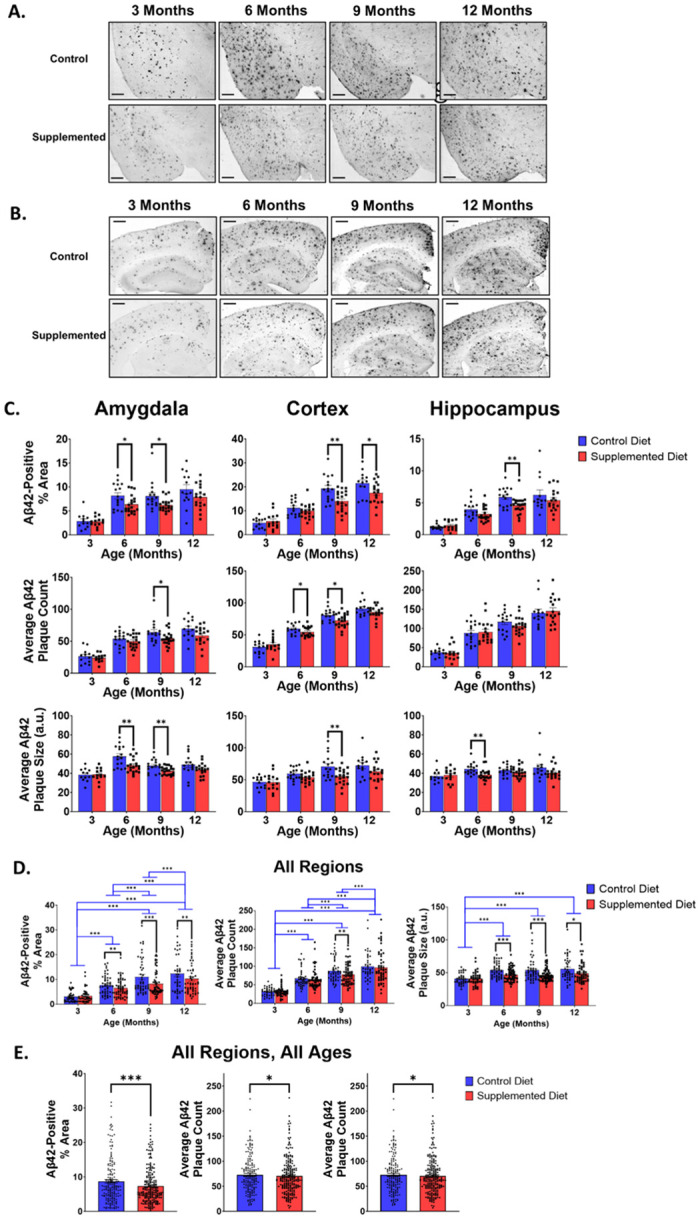Fig 3. Perinatal choline supplementation reduces Aβ42 deposition in the amygdala, cortex, and hippocampus of AppNL-G-F mice.

Representative 2x magnification images of the basolateral and basomedial amygdalar nuclei (A), hippocampus, and cortex (B) of Aβ42 immunohistochemistry in 3-, 6-, 9-, and 12-month-old mice show that Aβ42 deposits in an age-dependent manner and perinatal choline supplementation can reduce amyloidosis in these brain regions of AppNL-G-F mice. Scale bar is 400 μm. (C) Perinatal choline supplementation decreased Aβ42-positive percent area in the amygdala at 6- and 9-months of age, in the cortex at 9- and 12-months of age, and the hippocampus at 9-months of age (p = 0.022, 0.013, 0.0030, 0.042, 0.0099, respectively; ANOVA). Perinatal choline supplementation also reduced average Aβ42 plaque count in the amygdala at 9-months of age, and in the cortex at 6- and 9-months of age (p = 0.035, 0.046, 0.019, respectively; ANOVA) and reduced average Aβ42 plaque size in the amygdala at 6- and 9-months of age, in the cortex at 9-months of age, and in the hippocampus at 6-months of age (p = 0.005, 0.009, 0.004, 0.003, respectively; ANOVA). (D) Using linear regression modeling, perinatal choline supplementation was able to significantly reduce Aβ42-positive percent area at 6-, 9-, and 12-months of age (p = 0.006, 0.00002, 0.009, respectively; ANOVA, black bars), average Aβ42 plaque count at 9-months (p = 0.005; ANOVA, black bars), and average Aβ42 plaque size at 6-, 9, and 12-months of age (p = 0.00003, 0.0001, 0.018, respectively; ANOVA, black bars). 3-month-old mice had a significantly lower Aβ42-positive percent area, lower average Aβ42 plaque count, and smaller average Aβ42 plaque size than 6-, 9-, and 12-month-old mice (blue bars). 6-month-old mice had a significantly lower Aβ42-positive percent area and lower average Aβ42 plaque count than 9- and 12-month-old mice (blue bars). 9-month-old mice had a significantly lower average Aβ42 plaque count than 12-month-old mice. See Results for statistics. (E) Using linear regression models of Aβ42 immunohistochemistry across the amygdala, cortex, and hippocampus and all ages, perinatal choline supplementation was able to significantly reduce Aβ42-positive percent area, average Aβ42 plaque count, and average Aβ42 plaque size (p<0.0001, p = 0.047, p<0.0001, respectively; repeated measures ANOVA).
